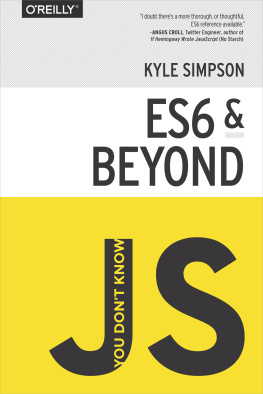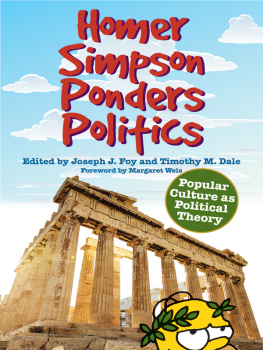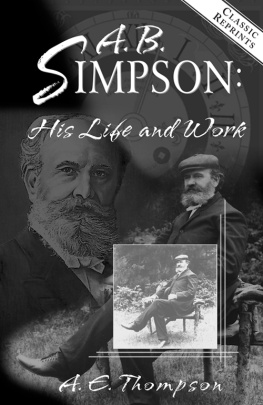TRANSFORMING SOCIETY?
Social work and sociology
Vicky Price and Graeme Simpson
Consultant editor: Jo Campling
First published in Great Britain in 2007 by
Policy Press University of Bristol 6th Floor Howard House Queens Avenue Clifton Bristol BS8 1SD UK Tel +44 (0)117 331 5020 Fax +44 (0)117 331 5367 e-mail
North American office: Policy Press c/o The University of Chicago Press 1427 East 60th Street Chicago, IL 60637, USA t: +1 773 702 7700 f: +1 773-702-9756
Vicky Price and Graeme Simpson 2007
British Library Cataloguing in Publication Data
A catalogue record for this book is available from the British Library
Library of Congress Cataloging-in-Publication Data
A catalog record for this book has been requested
ISBN 9781447324294 epub
ISBN 9781447324300 Kindle
The right of Vicky price and Graeme Simpson to be identified as authors of this work has been asserted by them in accordance with the 1988 Copyright, Designs and Patents Act.
All rights reserved: no part of this publication may be reproduced, stored in a retrieval system, or transmitted in any form or by any means, electronic, mechanical, photocopying, recording, or otherwise without the prior permission of Policy Press.
The statements and opinions contained within this publication are solely those of the author and not of The University of Bristol, Policy Press or the British Association of Social Workers (BASW). The University of Bristol, Policy Press and BASW disclaim responsibility for any injury to persons or property resulting from any material published in this publication.
Policy Press works to counter discrimination on grounds of gender, race, disability, age and sexuality.
Cover design by Qube Design Associates, Bristol.
Front cover: photograph supplied by kind permission of www.third-avenue.co.uk
Readers Guide
This book has been optimised for PDA.
Tables may have been presented to accommodate this devices limitations.
Image presentation is limited by this devices limitations.
Contents
Acknowledgements
Many people have helped in the writing of this book, some have hindered. Of course, what remains is the authors responsibility but special thanks go to Stuart Connor, for his ideas on the importance of the dialectic; Dave Denham, for his encouragement, belief in the importance of classical sociology, and for reading some of the early drafts; Ani Murr, who read through all the drafts, when she could have been watching Liverpool or Shrewsbury Town play football or taking her dog for a walk; Judith Holt, who tried her best to give us time away from teaching to write this; Paul Grant, who encouraged us to develop the ideas; Ann Davis in the first instance; and Margot Levinson, who had her own wonderful way of keeping everything in context!
Becky thought of an alternative title, which wasnt used, and Sarah kept asking about how things were going. Ollie, is glad that its all finished, and he can get the computer back, while Michael provided inspiration for some of the material. Tom spent most of the time in the Middle East and James is always remembered.
Finally, thanks go to the late Jo Campling and staff at The Policy Press for their encouragement, help and advice; our students, of course, who have helped us to develop ways of presenting the material in an accessible manner and who have given us help and ideas far beyond what they could have imagined; but, above all, to our teachers and all those involved in the struggle for a better world.
Vicky Price and Graeme Simpson, November 2006
Introduction
The authors have been teaching sociology (and, for that matter, social work) for nearly 30 years, many of which were spent in practice. One of the shifts that has been apparent in social work during this period has been the move towards an office-based bureaucracy. During discussions about the nature of social work with students, and practitioners undertaking post-qualifying programmes, the authors have become acutely aware of how little direct contact many social workers have with service users, and that sociology has only minimal impact on their practice. As a result, the authors have developed an approach to the teaching of sociology and its relevance for social work that is reflected in this book.
The approach has been well received. Many students have commented, however, that although the ideas are accessible and relevant (because they are located in the real world), they are not always easy to grasp (because that is the nature of sociology, trying to explain the commonplace). Above all, the book was written because the authors have a strong desire to rekindle what C. Wright Mills (2000) famously termed the sociological imagination in todays generation of social workers.
As noted above, this book came out of the authors teaching and it is designed to be as accessible as possible to all readers. Students begin courses full of enthusiasm and this is to be encouraged, but the authors were presented with the problem of how to maintain accessibility when the material within the book was so varied in its complexity. In addition, not all readers respond in the same way. In order to make the material as accessible as possible, the authors have used relaxed and informal language throughout the book. Another technique used is to ask questions, inviting the reader to engage in activities. A third is to provide short case studies or vignettes that draw on peoples experiences either as carers or social workers. Finally, there is more complex academic discussion and explanation when the material demands it. Although this results in a combination of styles, the hope is that the book will be read sympathetically, allowing for the fact that readers will respond differently. One colleague commented that it reads like a discussion, at times easy-going, at others telling stories and recounting experiences, and sometimes becoming very intense. That is how it is in real life.
Introductions clarify general terms of reference and set out what you are going to do, why and how you are going to do it. This is good advice for writing essays and completing assessed tasks, and it underpins the very tasks that those involved in social care work at all levels undertake. With that in mind, this section starts by trying to clarify what certain terms mean trying, because not all terms have exactly the same set of shared meanings.
Social work and social care
What is social work and how is it different to social care? First, these are terms that are very country-specific. Activities that are termed social work in some European countries, for example, are seen differently in the UK. In Germany, there is a national organisation of fan projects. These projects exist at all professional football clubs and are organised and staffed with social workers. At the Borussia Dortmund fan project, for example, there are five full-time members of staff: three qualified social workers, an accountant and a director of sporting activities (www.fanprojekt-dortmund.de). The aim of such projects is, first, to ensure safe and trouble-free matches, and, second, to provide support and advice to fans who are experiencing difficult times in their lives. Such projects do not exist in the UK, and even if they did the staff would be unlikely to have the title social worker.
To make matters of definition more complex, what was once seen as social work in the UK is now often described as social care. Staff who work in residential care in the early 21st century are regarded primarily as social care staff, whereas in the 1970s they would have been seen as residential social workers. The title social worker in the UK has only been protected since the establishment of the General Social Care Council (GSCC) and processes of registration, open since 2004. Yet, the GSCC regulates













![Kyle Simpson [Kyle Simpson] - You Don’t Know JS: Up & Going](/uploads/posts/book/121420/thumbs/kyle-simpson-kyle-simpson-you-don-t-know-js.jpg)



